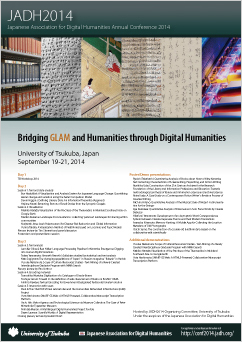Session 3-3
The Changing Appellations of “Japan” in Russian Magazine Rubesh in Harbin
- Mao Sugiyama (Osaka University)
This presentation aims to illustrate how Russian people looked at Japan, by investigating the Russian magazine Rubesh (Рубеж), published during the period 1926–1944 in Harbin, Manchukuo. As Sawada (2005) points out, Rubesh would refer to Japan as two different appellations, “Iaponiia” (Япония) and “Nippon” (Ниппон), but Sawada does not mention any details about how they were used. The occurrences of the words, however, seem to have some patterns. Thus it is worth looking at how they were distinguished in Rubesh in order to elucidate how the Russians saw Japan those days.
At that time, a large number of population migrated to Harbin from the Czarist Rus- sia. One of the main reasons of the migration was to escape the Russian Revolution in 1917. The refugees were called “White Russians”. After Japan built Manchukuo in China in 1932, the Japanese government gradually controlled not only Chinese in- habitants but also the White Russians. Particularly, the Japanese government took ad- vantage of their anti-Soviet sentiment. Since publications in Manchukuo were, under strict control of the overseeing government, editorials or articles raising any criticism of Japan were hardly found in Rubesh.
The two appellations of Japan in Russian, “Iaponiia” and “Nippon”, evoke very different images. This is supported from a Google and a corpus search. Let me show an example of the corpus search: The national corpus of Russian language shows a stark contrast with the use of the two appellations. “Iaponiia” is related to military contents, nationality and just as the calling of the country, while “Nippon” is used almost aways in the string “Dai-Nippon” (Empire of Japan). This distinction should have arisen since “Nippon” in Russian is a borrowing word from the Japanese language. Though these results are based on contemporary linguistic use, it should not be surprising to say that “Nippon” in Russian is related to military contend, whereas “Iaponiia” does not have such a connotation from the perspective of a “digital humanistic” study.
In 1934 the NHK (Japan Broadcasting Corp.) decided to change the appellation of Japan from “Nihon” to “Nippon” . Moreover prints on stamps used in Japan were also changed from “Japan” to “Nippon”. The change of Japanese appellations in Rubesh might have been triggered by the change of policy that the Japanese gorvenment made, namely, the change of appellations from “Nihon” to “Nippon”. In Russian magazine Rubesh, the words “laponiia” and “Nippon” co-occur with words of positive senti- ment. A close examination of articles in Rubesh shows us how Japanese government manipulated Russian to have a particular image of Japan, which is quite different from what Russians have today in terms of concreteness of words evoked in “laponiia” and “Nippon”.
In order to investigate the distinction in the use of the words, I went through all articles that include either or both words. By using a digitized corpus of Rubesh, I will illustrate how spectacularly the usage pattern of the appellations of “Japan” shifts by means of “the paragraph-analysis method” which I used in this study.
- Keywords
- anchukuo, Harbin, the White Russian, the changing appellation of “Japan”, the Russian magazine “Rubesh”

